Energy-Efficient Renovation & Building
Al-Mustaqbal University's (MU) Energy and Climate Change Policy aligns with international
sustainability goals, particularly the United Nations Sustainable Development Goal 7 for 2030. MU has
formulated a comprehensive set of policies to address the challenges of energy consumption and climate
change. These policies encompass energy conservation, renewable energy utilization, and greenhouse
gas reduction. Moreover, MU has adopted a range of strategies, including the promotion of energy-
efficient appliances, cleaner energy sources, sustainable building practices, and investments in
renewable energy. In its commitment to conserving energy and combating climate change, MU has
established a Sustainable Development Unit dedicated to adhering to energy conservation guidelines
within designated buildings and promoting energy conservation and substitution across the university.
Policy objectives:
1. Inclusion of energy conversion and management programs in the curricula of educational
institutions, universities, and governing bodies.
2. Training and capacity-building for academic staff and experts in energy and sustainable building
construction to enhance the utilization of sustainable energy in building projects.
3. Encouragement and support for scientific research and advancements in the fields of energy and
building sustainability.
4. Facilitation of sustainable building construction through expert consultancy.
5. Promotion of innovative funding mechanisms for energy efficiency, transition, and consumption
projects.
6. Adoption of energy-efficient equipment, processes, systems, and devices, such as LED lighting
and solar-powered air conditioning.
Complete Read
Upgrade Buildings to Higher Energy Efficiency
Al-Mustaqbal University (MU) is embarking on a journey towards heightened energy efficiency,
aligning with the ethos of green building principles. The initiative underscores the imperative of
energy conservation and management to foster a culture of energy saving across the campus.
Transitioning from conventional appliances, the university has embraced energy-efficient alternatives,
setting a precedent in sustainable operations.
The overarching goal is to mold a sustainable university ecosystem reliant on clean and affordable
energy by 2030. This endeavor is in sync with the United Nations Sustainable Development Goal-7
(UN SDG-7), aiming to significantly reduce energy consumption while promoting the adoption of
renewable energy sources and efficient appliances.
The target set forth is to achieve 100% utilization of energy-efficient appliances by 2030, marking a
significant milestone in MU's sustainability agenda.
MU’s energy consumption program is bifurcated into two core segments:
1. Awareness Campaign: An educative initiative targeting students, staff, and the surrounding
community, accentuating the significance of energy conservation, climate change, and global
warming.
This facet leverages various channels including posters, conferences, and social
media to disseminate knowledge and stir consciousness regarding energy reduction.
2. Technical Industrial Applications: This segment is geared towards enriching students'
academic experience through hands-on projects during their undergraduate studies.
These
applied research projects, interfacing with private and public sector entities like the ministry of
electricity and oil, are intended to be conduits for practical learning and contribution towards
energy management solutions.
Complete Read
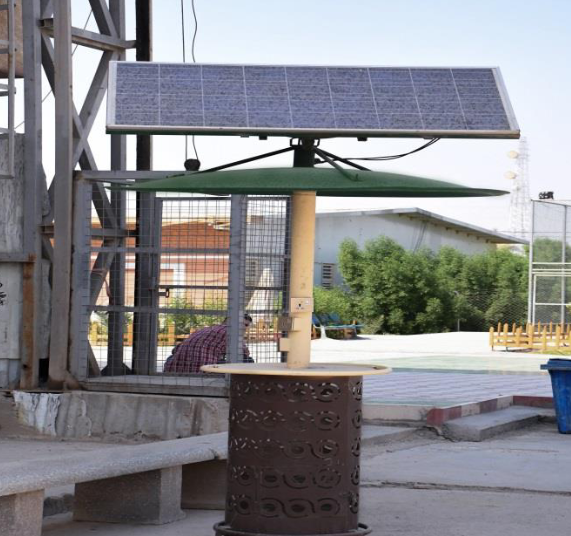
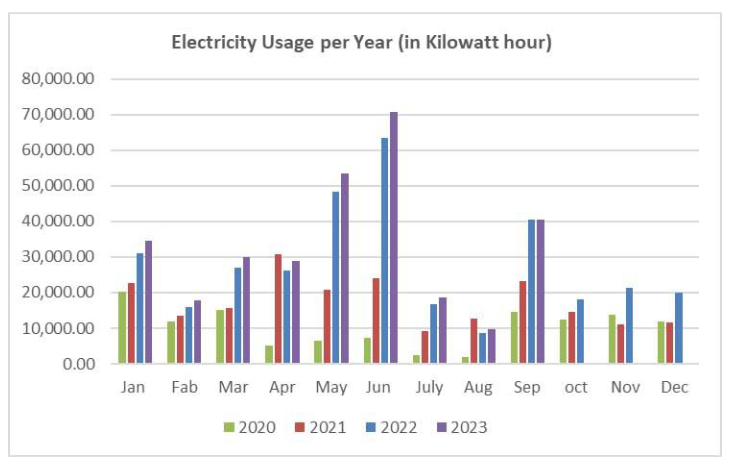
Carbon Reduction & Emission Reduction Process
Al-Mustaqabl University (MU) has exhibited a strong commitment towards carbon management and
reducing carbon dioxide emissions. The establishment of a University Environmental Policy, reviewed
periodically by the Environmental Strategy Committee, reflects a thorough understanding of the
environmental impact and the urgency to act responsibly. This policy echoes MU's mission to intertwine
excellence in education and research with a sustainable approach to managing its resources and
operations.
To further advance its carbon management agenda, a myriad of strategies can be employed:
1. Carbon Auditing and Reporting: Regular carbon audits can quantify the university's carbon
emissions, promoting transparency and accountability through reporting to both internal and
external stakeholders.
2. Energy Efficiency Upgrades: Incorporating energy-efficient technologies such as LED lighting,
modern HVAC systems, and insulation improvements can significantly reduce energy
consumption.
3. Green Procurement Practices: Prioritizing eco-friendly, energy-efficient, and sustainably
sourced products and services through green procurement practices can have a lasting positive
impact.
4. Waste Management Improvements: Enhancing waste management by increasing recycling,
composting, and reducing single-use plastics helps to minimize the university's waste footprint.
5. Water Conservation Initiatives: Water-saving measures like low-flow fixtures, rainwater
harvesting, and water-efficient landscaping can contribute to overall resource conservation.
6. Community Engagement and Education: Engaging the university community through
educational programs and campaigns fosters environmental awareness and encourages
sustainable behaviors.
7. Research and Innovation: Providing a platform for sustainability-focused research and
innovation enables students and faculty to contribute to solving environmental challenges.
8. Sustainable Food Systems: Promoting locally sourced, organic, and plant-based food options
contributes to sustainable food systems within the university.
9. Active Transportation Incentives: Encouraging walking, cycling, and the use of public transit
through infrastructure improvements and incentives can promote a culture of active
transportation.
10. Green Building Standards: Adopting green building standards for new constructions and
renovations ensures energy efficiency and sustainability in campus facilities.
11. Renewable Energy Installations: Expanding the installation of renewable energy systems like
solar panels and wind turbines can provide clean energy for campus operations.
. Carbon Offsetting and Sequestration: Investing in carbon offset projects and exploring natural
carbon sequestration opportunities like tree planting enhances the university's carbon
management efforts.
13. Policy Advocacy: Engaging in policy advocacy to support environmental regulations at local,
national, and international levels reinforces the university's commitment to environmental
sustainability.
Complete Read
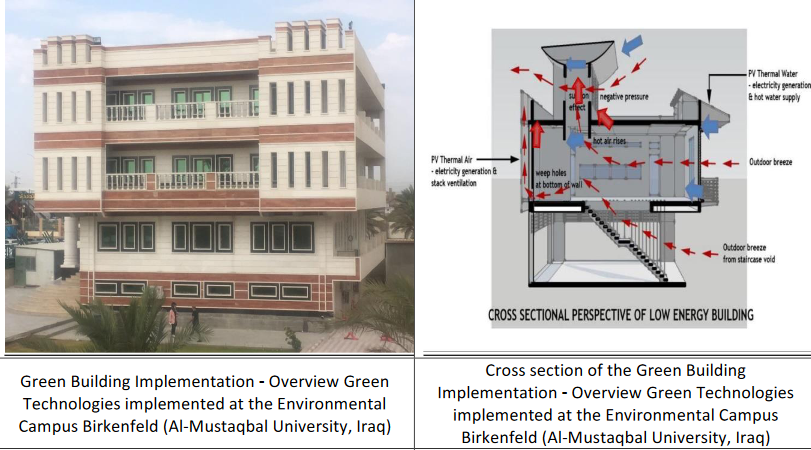
Plan to Reduce Rnergy Consumption
The university has implemented energy efficiency plans as part of their broader
sustainability initiatives to reduce overall energy consumption. These plans are
designed to outline specific strategies and actions that the university will take to
optimize energy use, minimize waste, and lower their environmental impact. Here are
some steps that could describe the presence of an energy efficiency plan at a university:
1. The university has developed a comprehensive energy efficiency plan that
outlines a strategic roadmap for systematically reducing overall energy
consumption across its campuses and facilities.
2. As part of its commitment to sustainability, the university's administration has
established an energy efficiency plan aimed at curbing energy waste, enhancing
building systems, and fostering a culture of energy conservation among students
and staff.
3. In line with its environmental stewardship goals, the university has implemented
a multi-year energy efficiency plan that involves retrofitting existing buildings,
adopting energy-saving technologies, and integrating renewable energy sources
to achieve substantial reductions in energy consumption.
4. The university's energy efficiency plan serves as a guiding framework for
consistently evaluating and upgrading infrastructure, utilizing energy-efficient
equipment, and implementing behavior-focused initiatives to achieve
measurable reductions in energy usage.
Complete Read
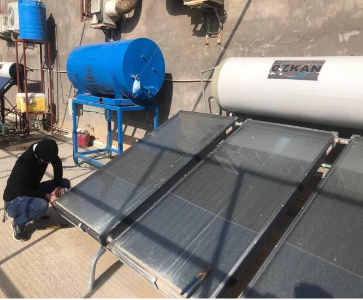
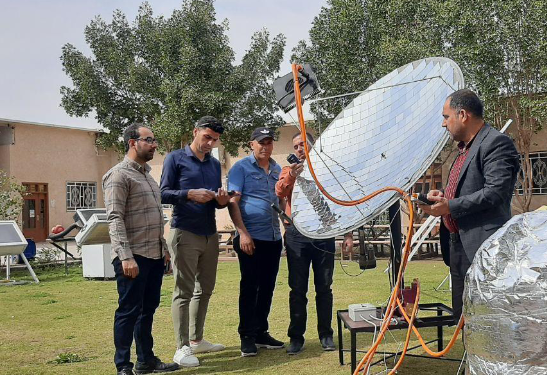
Energy Wastage Identification
Al-Mustaqbal university do conduct energy reviews or energy audits to identify areas where energy
wastage is highest. Energy reviews are a common practice in the realm of sustainability and energy
efficiency. These reviews involve a comprehensive assessment of the energy consumption patterns
of a facility, including buildings, equipment, and systems. The goal is to identify inefficiencies, areas
of high energy consumption, and opportunities for improvement.
Energy reviews typically include the following steps:
1. Data Collection: Gathering data on energy consumption, utility bills, occupancy patterns,
and equipment usage.
2. On-site Assessment: Visiting the campus and facilities to assess energy-consuming systems
such as lighting, HVAC (heating, ventilation, and air conditioning), appliances, and more.
3. Analysis: Analyzing the collected data to identify trends, patterns, and areas where energy
usage is particularly high or inefficient.
4. Recommendations: Proposing specific recommendations for energy-saving measures,
including upgrades, retrofits, behavioral changes, and the implementation of energy-
efficient technologies.
5. Cost-Benefit Analysis: Evaluating the potential costs and benefits of implementing the
recommended measures.
6. Action Plan: Developing a comprehensive action plan that outlines the steps to be taken,
the timeline, responsible parties, and expected outcomes.
7. Implementation: Carrying out the energy-saving measures as outlined in the action plan.
Complete Read
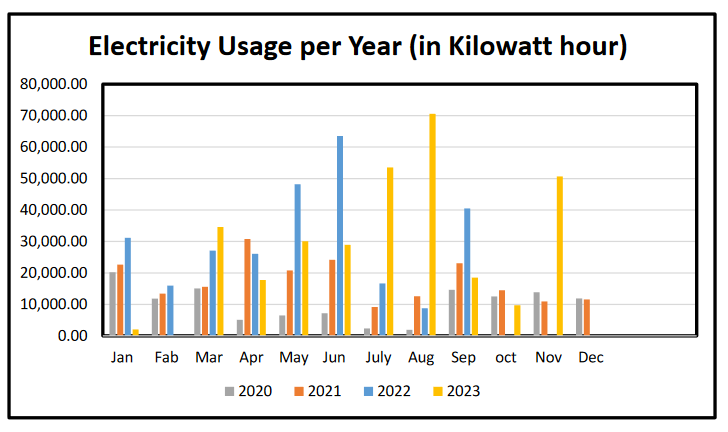
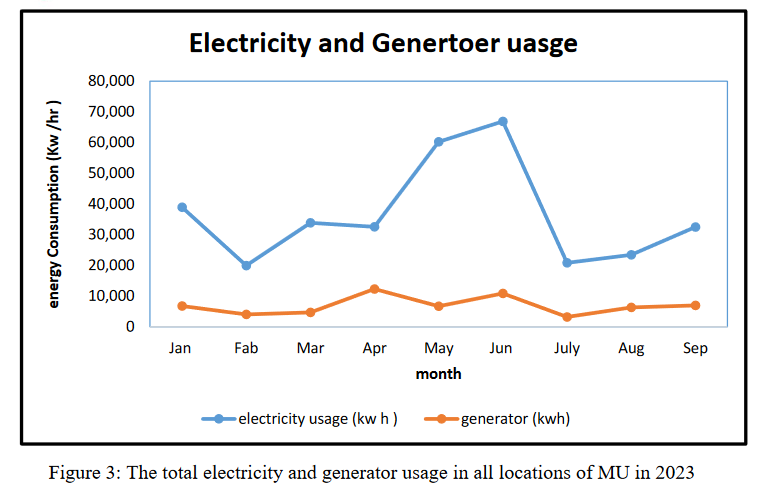
Divestment Policy
Al-Mustaqbal University (MU) spearheads an assertive energy and climate change
strategy in direct response to the United Nations' Sustainable Development Goal 7,
targeted for realization by 2030.
Our institution unyieldingly commits to an array of
impactful policies, including a resolute energy consumption reduction program, a
forward-looking renewable energy usage policy, and an unwavering greenhouse gas
reduction program. Our resolve extends beyond rhetoric, with a sweeping array of
meticulously outlined strategies primed to catalyze energy conservation.
This
encompasses amplifying the deployment of energy-efficient appliances, embracing
cleaner fossil fuel alternatives, championing sustainable green building practices, and
channeling substantial investments into the realm of renewable energy.
To actively promote conservation efforts amid energy and climate challenges, Al-
Mustaqbal University (MU) has taken a proactive step. They've set up a special unit
focused on sustainable development.
This unit has the important responsibility of closely
maintaining energy-saving goals for specific buildings. It's not just about numbers – this
unit also plays a crucial role in cultivating an awareness of energy-consciousness across
the university.
Their aim is to bring about a significant change in how sustainable energy
is embraced and used throughout the campus.
Complete Read
Energy Usage Per sqm
Energy use density is typically expressed as energy consumption per unit of gross domestic product
(GDP) or per unit of floor area in buildings. Here the energy consuming density for the university
buildings in detail.
Complete Read
Local Community outreach for energy efficiency
Al-Mustaqbal university has recognized the importance of promoting energy efficiency and clean energy within
their local communities. As part of their commitment to sustainability and community engagement, the university
offers programs and initiatives aimed at educating the local community about these topics. Here are a few ways
in which the university provide programs for the local community to learn about the importance of energy
efficiency and clean energy:
1. Workshops and Seminars: The university often organize workshops, seminars, and informational
sessions on energy efficiency, renewable energy sources, and sustainable practices. These events are
typically open to the public and provide an opportunity for community members to learn from experts in
the field.
2. Community Outreach and Extension Programs: The university with
outreach or extension departments may collaborate with local schools, community centers, and
organizations to deliver educational programs focused on energy efficiency and clean energy. These
programs might include interactive activities, educational materials, and practical demonstrations.
Complete Read
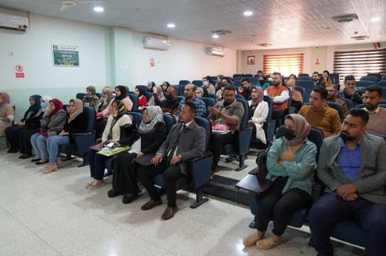
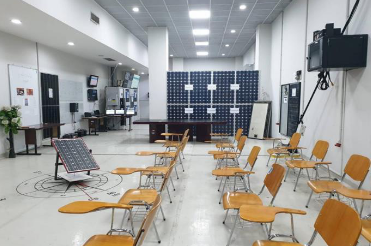
100% Renewable Energy Pledge
Al-Mustaqbal university has been actively working towards sustainability goals, including the transition to 100%
renewable energy sources. Here's a breakdown of some common actions the university take in this regard:
1. Meetings and Discussions: The university holds meetings and discussions involving various stakeholders, with the local
community, to gather input and support for their sustainability initiatives. These discussions can help shape policies and
plans.
2. Events: the university often organizes events to raise awareness about sustainability and renewable energy. These events
might include workshops, seminars, conferences, and public lectures featuring experts in the field.
3. Campus Infrastructure: To achieve 100% renewable energy, the university invests in renewable energy technologies like
solar panels, wind turbines, and geothermal systems. They may also implement energy-efficient building designs and
technologies.
Complete Read
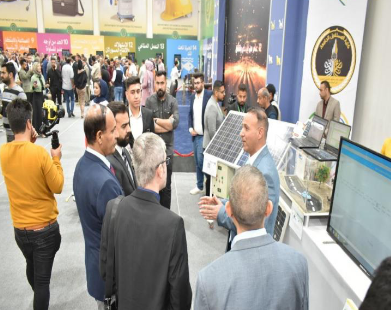
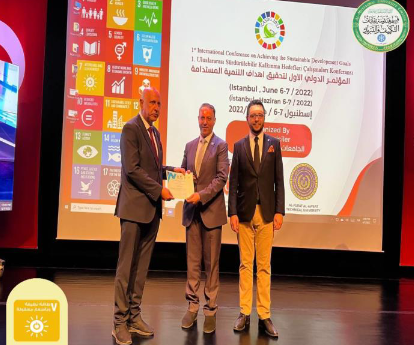
Energy Efficiency Services for Industry
There is a program of Energy efficiency services for industry with the following steps:
Fundamental One: Patent that service the industry
MUC aimed at improving energy efficiency and clean energy.
The industrial sector seeks the
assistance of energy experts from the professors working at our campus, promote a cooperation
between the university and industry sectors
Ministry of higher education and scientific research supplied the universities with a platform to
upload their ideas of the applied research to allow for the industrial companies in private and
public sector to know about these ideas.
One of these service that involve a patent on “Design of Cooling System for an Automotive using
Exhaust Gasses of Turbocharged Diesel Engine” prepared by Prof. Dr. Qusay Rasheed Al-Amir1
and Asst. Prof. Dr. Mohamed F. Al-Dawody and Assit Prof. De. Azher M. Abed, HOD of air
conditioning and refrigeration techniques engineering department, Al-Mustaqbal University
College
Complete Read
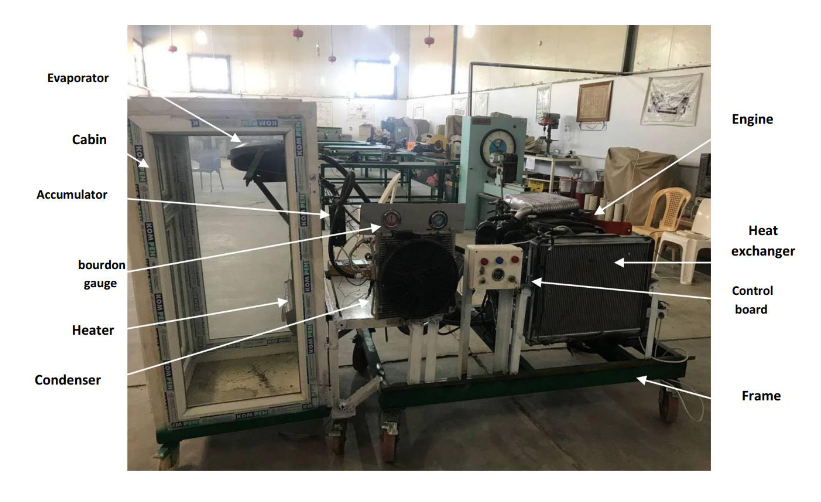
Policy Development for Clean Energy Technology
Al-Mustaqbal university plays important roles in promoting clean energy and energy-efficient
technology policy development and implementation.
However, the specific actions and
involvement of the university in such initiatives can vary widely depending on the organization’s
priorities, research expertise, and partnerships.
Here is one of the activity in which universities
typically contribute to these efforts:
- Organization of collaborative meeting and conferences on sustainable energy with the
government institutions.
Complete Read
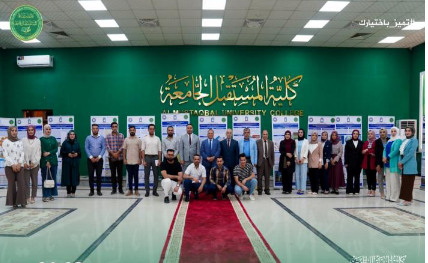
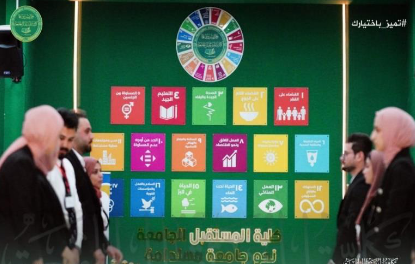
Assistance to Low-Carbon Innovation
Al-Mustaqbal university do offer direct services to local industries aimed at improving energy
efficiency and clean energy.
These services often fall under the umbrella of outreach programs,
research initiatives, or collaborations with local businesses and industries.
Here is common way in
which the university can provide such services:
Research and Development Support: The university offers research grants, access to cutting-edge
laboratories and equipment, and partnerships with faculty and researchers who have expertise in low-
carbon technologies.
For example, One of these service that involve a patent on “Design of Cooling
System for an Automotive using Exhaust Gasses of Turbocharged Diesel Engine”
Complete Read